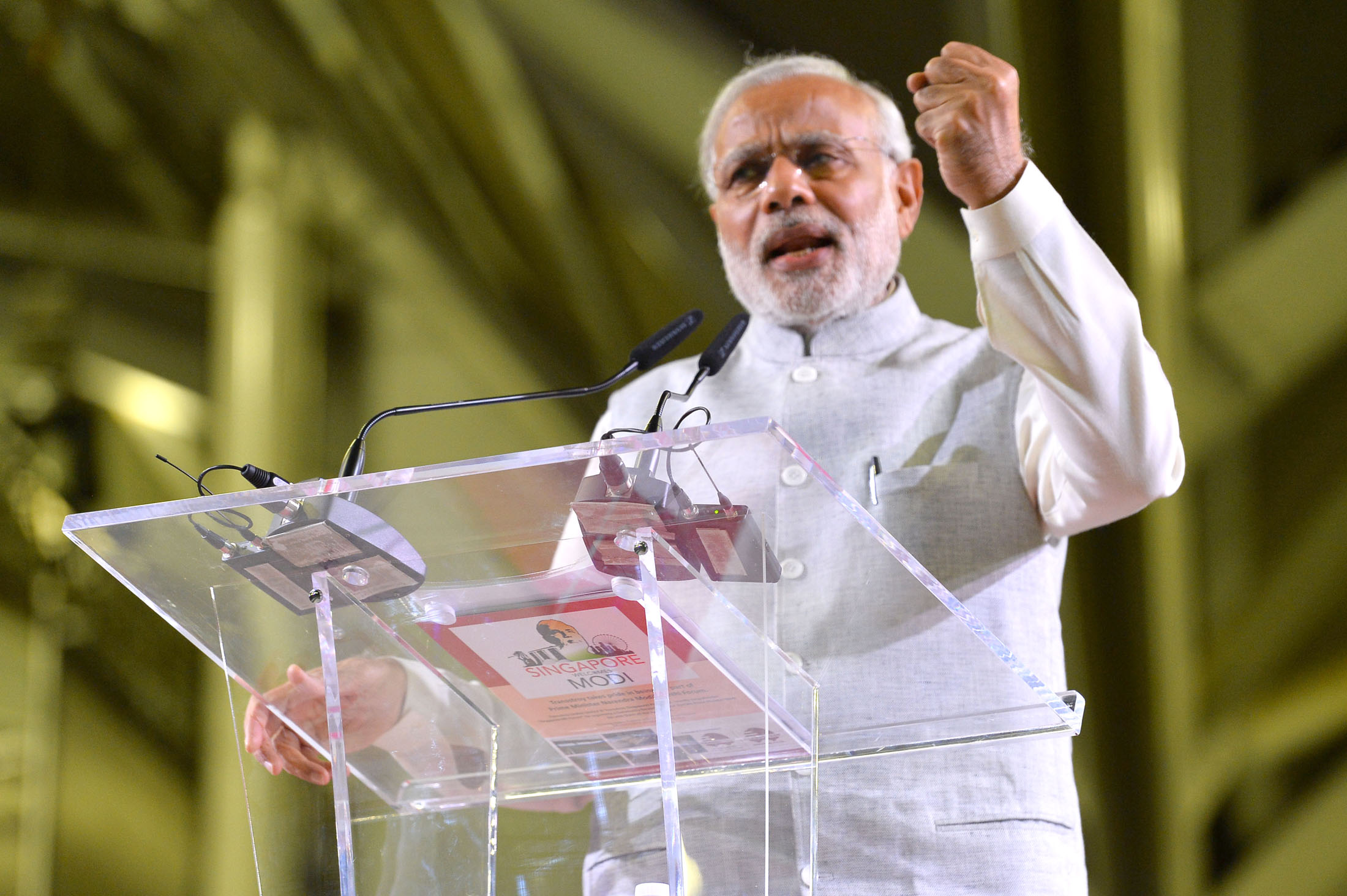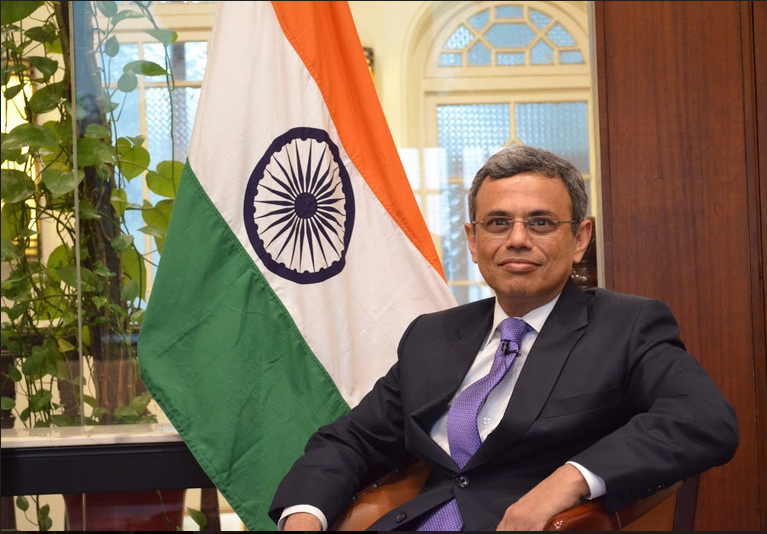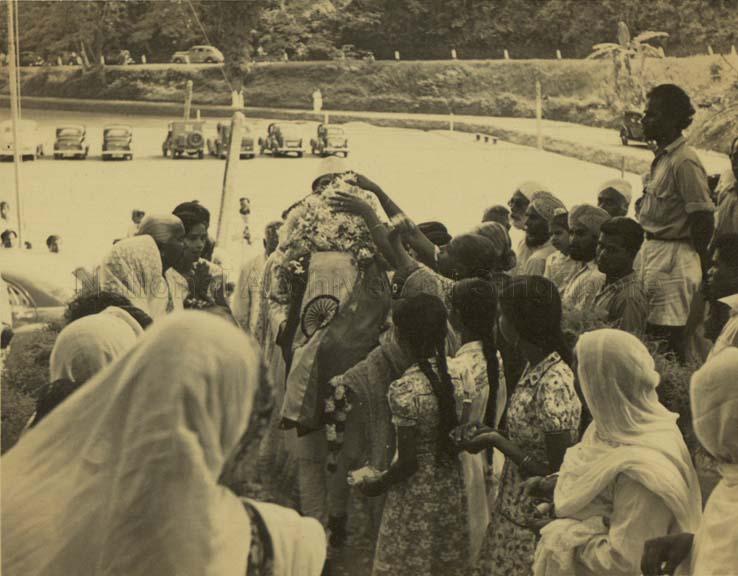Indian Prime Minister Narendra Modi will start his two-day visit to Singapore from tomorrow. Modi will become the first Indian PM to give the keynote address at the prestigious Shangri La Dialogue.
Speaking on the upcoming visit, the High Commissioner of India to Singapore Jawed Ashraf said a very comprehensive programme has been designed for the prime minister, which covers defence and security, economic partnership, innovation and technology and of course a strong engagement with the diaspora and cultural and human links. The PM will start his visit by addressing a strong crowd of 5,000 people in a business and community event at the Marina Bay Sands Convention Centre.
Connected to India spoke to the Indian High Commissioner about other highlights of the PM’s visit, including his engagement with the diaspora, the outline of his vision and India’s engagement with the Indo-Pacific region.
Connected to India: Diaspora is really excited and looking forward to welcoming Prime Minister Modi once again in Singapore. He has a very comprehensive itinerary for the three days he will here. What kind of engagement can they expect to have with the PM?
Mr Jawed Ashraf: There are four very important pillars of our relationship. One is strategic, which encompasses political, defence and security. That gets highlighted both at the Shangri-La Dialogue as well as in his bilateral talks and of course by his visit to Changi naval base where he’ll interact with Indian and Singaporean sailors. That’s one piece; the second of course is the economic piece and that is again a function of both outcomes as well as his engagements. He is having a very good set of CEOs for a roundtable on May 31 in addition to the fact that he’ll also be addressing the business community on the prospect of India-Singapore relationship and the third pillar is the innovation and technology partnership; this visit is really going to showcase that.
He will begin his tour along with PM Lee to an exhibition of outstanding innovations by Indian Singapore startups and entrepreneurs and innovators and the prime minister will also meet another group of leaders in this innovative field and we are looking at some really good outcomes in that area and part of this innovation and technology is visiting the Nanyang Technological University, where he will interact on the theme of transforming Asia through innovation; a theme that goes to the heart of his vision and what is really driving the transformation in India as well.
And the fourth is, of course, the human and cultural link that of course is the most important and the foundation of this relationship, and in many ways, as we are engaging with this region and as we are intensifying what the prime minister calls the Act East Policy, we are also reclaiming the heritage of the ancient links we have in this region. We’ve been here for more than 2,000 years there is archeological evidence to that, this is been a continuous history of engagement is evident in the life, landscape architecture festivities faith culture in this part of the world and particularly in Singapore, So that’s a very important aspect and of course engaging with the diaspora something he has based a lot of priority on since the time he has entered office.
Connected to India: From Delhi to Singapore, everyone is talking about PM unveiling the plaque of Mahatma Gandhi at Clifford Pier on June 2, what was the thought behind doing this event?
Mr Jawed Ashraf: We have some archival photos in the Embassy of the immersion of Mahatma Gandhi’s ashes at Clifford Pier on March 27, 1948. Now, when we dug a little bit deeper, it was really a very touching and moving moment of history because there was so much grief at that point in time; I looked at some of the reports of Straits Times from that time, when the immersion took place, 10,000 people had gathered, people were singing Raghupati Raghav Raja Ram.
There were boatloads of people who went in the sea, they drank the water from the sea after the ashes were immersed, aircraft flew low showering petals; people from all backgrounds, faiths and races were there, Europeans, Malays, Indians and Chinese; everyone had gathered to pay homage to a man who represented universal values. So I think it’s a very important and solemn thread that unites us as people.
We are one year away from the 150th anniversary of Mahatma Gandhi’s birth. I thought we if commemorate that moment with a plaque at Clifford Pier which is really the heart of Singapore today, it would be a constant reminder of the values he lived for, his mission and, in some way, wherever I’ve seen a Gandhi statue or a tribute to him, it touches people.
When this idea germinated, we approached the Fullerton Hotel which is currently responsible for Clifford Pier, a very historic site, and whether we could install a Gandhi plaque over there, and being a heritage hotel they were very excited and enthusiastic about it, so they put together with us a very nice programme. We are very grateful to them for their support.
Connected to India: The highlight of this trip will be PM’s keynote address at the Shangri-La Dialogue. What are the issues one can expect the PM to highlight from this very prestigious platform?
Mr Jawed Ashraf: There is just enormous, enormous expectation and anticipation here and anywhere else about prime minister’s keynote speech at Shangri-La Dialogue for two reasons; one, of course, this region is in a state of flux. There is so much change and shift taking place, so much uncertainty that is one reason. And second, people expect India to play an important role in this region. So people see India as a force of good, as a stabilising factor, as an economic engine and a country that can very easily and very significantly contribute to advancing peace and prosperity in the Indo-Pacific region in the 21st century, because in many ways the centre of gravity of the world has shifted to the Indo-Pacific region and in many ways this the region that will shape the course of the 21st century and India will be an important player in this region.
We have always been present here historically and as we have regained and reclaimed our heritage and regained our roles and responsibility here, the Prime Minister will outline the vision India has of peace and prosperity in the Indo-Pacific region, the kind of role India will play, the responsibility India is willing to resume based on its civilisation ethos, based on its historical links and democratic ideals.





